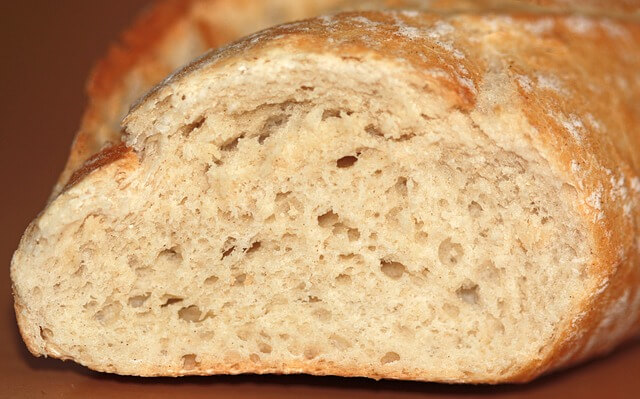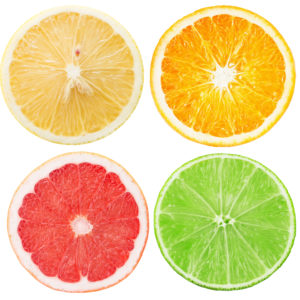Food allergies and food intolerances are an ever-growing public health concern. Gluten is in the spotlight for a variety of reasons, with more and more people eliminating this ingredient from their diets. In fact, over 3 million Americans alone follow a gluten-free diet. So what are the risks of gluten, and why are so many people going gluten free?
First, What Exactly is Gluten?
Gluten is a general name for proteins found in several types of grains, including wheat, rye and barley. The proteins that cause sensitivity are collectively called prolamins. Each grain has a unique prolamin fraction; gliadin (wheat), secalin (rye), and hordein (barley). Gluten consists of two proteins, gliadin, which is alcohol soluble, and glutenin which is not soluble in alcohol. When flour and water combine, gluten forms a glue-like network of proteins. This gives dough its elasticity and allows bread to rise, producing a chewy, soft-textured bread.

How Do Our Bodies Digest Gluten?
In normal digestion, enzymes break down long strands of protein into smaller, digestible components. Digestive enzymes perform a variety of tasks, from breaking down food to protecting the microvilli lining of our digestive tract, which is where nutrient absorption takes place. The enzyme tissue transglutaminase (tTG) breaks down gluten into its component proteins, gliadin and glutenin.
What is Celiac Disease?
Celiac disease is a genetic autoimmune disease that occurs when a person possesses either or both of the antigens HLA-DQ2 or HLA-DQ8. These immune system antigens see these proteins (primarily gliadin) as intruders. The immune system responds with a dispatch of antibodies to attack the gliadin. In celiacs, these antibodies attack digestive enzymes as well as the culprit proteins. This is where the real problem lies.

As digestive enzymes diminish, nutrient-absorbing microvilli erode. This in turn decreases a person’s ability to effectively absorb nutrients and can even cause intestinal walls to become leaky. The result may cause a variety of symptoms, including bloating, constipation, diarrhea, weight loss, fat malabsorption, anemia, and low vitamin D. Furthermore, this malnutrition deprives a person’s body of essential nutrients and can bring on a whole host of other health problems and diseases.
How About Gluten Sensitivity?
Most people do not possess both antigens that cause celiac disease. Some people have only one, which may result in gluten sensitivity that is less severe as in true celiac sufferers. Still others do not have either antigen but still experience some adverse reactions to gluten. So what’s going on?
Within the mucosal lining of our gut, a protein called zonulin moderates the permeability of the tight junctions to allow nutrient absorption. Gluten proteins are large and difficult for our bodies to break down, so they cause a bigger release of zonulin. Thus, the tight junctions in the intestinal wall are opened too much for too long. This increases intestinal permeability and results in leaky gut. When this occurs, toxins, microbes, antibodies, and undigested food particles escape from the intestines and travel throughout the body via the bloodstream.
The Dreaded A Word: Autoimmune. What does it really mean?
The escape of antibodies from the intestine basically unleashes a host of aggressive killer cells. These antibodies attack other cells, tissues, and organs in the body. This is why gluten sensitivity often results in autoimmune disease. The food a person eats actually causes the body to attack itself, sometimes on multiple fronts.

Who Does this Really Affect?
The fact of the matter is, gluten sensitivity is not always genetic. Anyone who consumes a large quantity of foods containing gliadin may experience symptoms. The more gluten we eat, the more zonulin is released, the more the intestinal wall is breached. For most people with a healthy digestive system, moderation is key. If you binge on a heavy meal with lots of bread, pasta, or other gluten-containing foods, you may just feel “heavy” and lethargic. Others may experience headache or gastrointestinal discomforts. When reactions become more severe, it is time to evaluate symptoms and diet.
Symptoms of Leaky Gut and/or Gluten Sensitivity
The most common symptoms of a gluten sensitivity or intolerance include:
- Bloating, constipation, diarrhea, nausea, or other gastrointestinal complaints
- Brain fog or confusion
- Joint and muscle pain
- Frequent headaches or migraines
- Unexplained fatigue
- Numbness in legs, arms, and hands
- Skin rashes
- ADHD or lack of focus
- Depression or anxiety
What Should You Do if You Suspect You are Gluten Sensitive?
The easiest way to discern if you are truly sensitive to gluten is to stop eating it entirely for a period of time. Depending on the severity, it takes a few weeks to several months for the gut to heal itself. However, most people who are sensitive notice an improvement of symptoms within just a few days of completely eliminating gluten.
If after several weeks of avoidance you notice an improvement in your overall health, it’s presumable that you have some degree of sensitivity. As you add gluten back in to your diet, pay close attention to how your body feels. It’s a good idea to keep a health journal and record your gluten intake. As you track your diet and symptoms, you will eventually discover the amounts and types of foods that cause the most reaction from your body. Then you can moderate your diet and avoid foods that bring the most discomfort.
If you suspect you may have celiac disease, it is important to see a physician for a diagnosis. Strict avoidance of gluten is the only option if you are celiac. There are also tests available to check for the presence of the antigens HLA-DQ2 or HLA-DQ8 to determine if you are gluten intolerant. These can be obtained through a doctor and some online self-testing sources.
If You Decide to Go Gluten Free

Fortunately, there are a variety of gluten alternatives readily available. Grocery stores and even most restaurants offer a variety of gluten free products. The internet is flooded with gluten free recipes and tips for substitution. Read labels carefully, especially if you are trying to avoid gluten completely. Look for products specifically labeled as gluten free. You’ll find a variety of bread, pasta, cereal, crackers, cookies, flours, baking mixes, etc.
What are Your Thoughts?
Do you adhere to a gluten free diet or think it is all hype?
For more information about the numerous benefits of a clean, healthy diet, come and check out the Clean Slate Cleanse.












